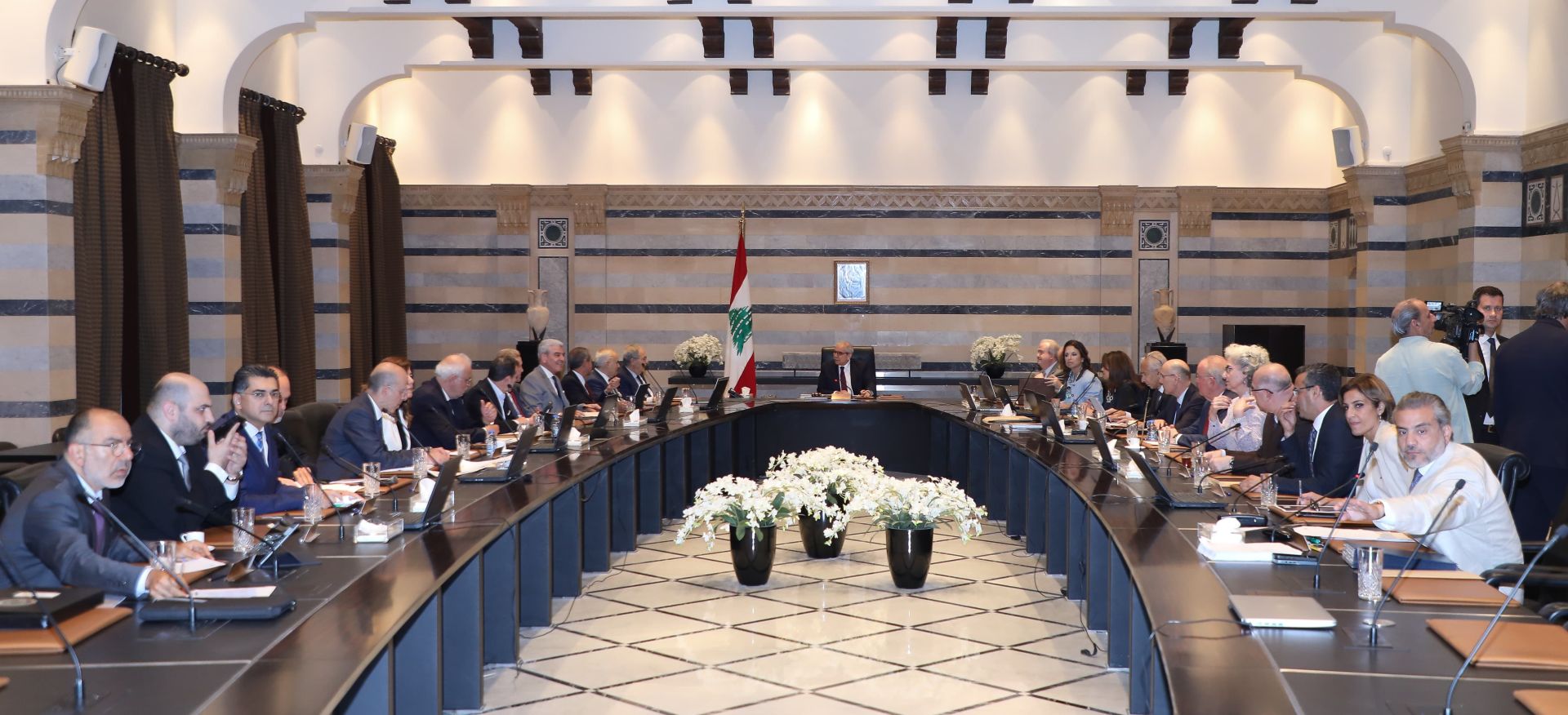
Prime Minister Nawaf Salam chaired a Cabinet session on Thursday at the Grand Serail, during which the Lebanese government approved several key decisions, including a notable increase to the minimum wage and a fast-track bill amending the Public-Private Partnership (PPP) law.
Following the meeting, Minister of Information Paul Morcos announced that the Cabinet approved most items on its agenda. Most prominently, the official minimum monthly wage was raised to LBP 28 million, a move aimed at easing financial pressure on workers amid the ongoing economic crisis.
Minister of Labor Mohammad Haidar confirmed that the wage increase would take effect at the end of next month. “The minimum wage for sickness and maternity leave benefits was raised from LBP 90 million to 120 million,” he added.
Haidar also said that the government “had finalized regulatory decisions necessary to appoint a new board of directors for the National Social Security Fund (NSSF).” He explained that this step paves the way to begin work on approving a new pension system.
The cabinet also passed an urgent draft law to amend Lebanon’s PPP framework. Introduced in recent years to draw private investment into public projects, the law is considered critical to advancing long-stalled infrastructure initiatives, particularly in electricity, transport and telecoms.
Concerning the proposal submitted by United States Ambassador to Turkey and Special Envoy to Syria Thomas Barrack, Morcos said the government would act swiftly if political consultations gained traction. While details of the proposal remain under wraps, the document is reportedly a diplomatic and economic framework intended to reduce border tensions with Israel and encourage foreign investment in Lebanon’s recovery. Barrack is said to have informally introduced the proposal during a recent visit to Beirut.



Comments